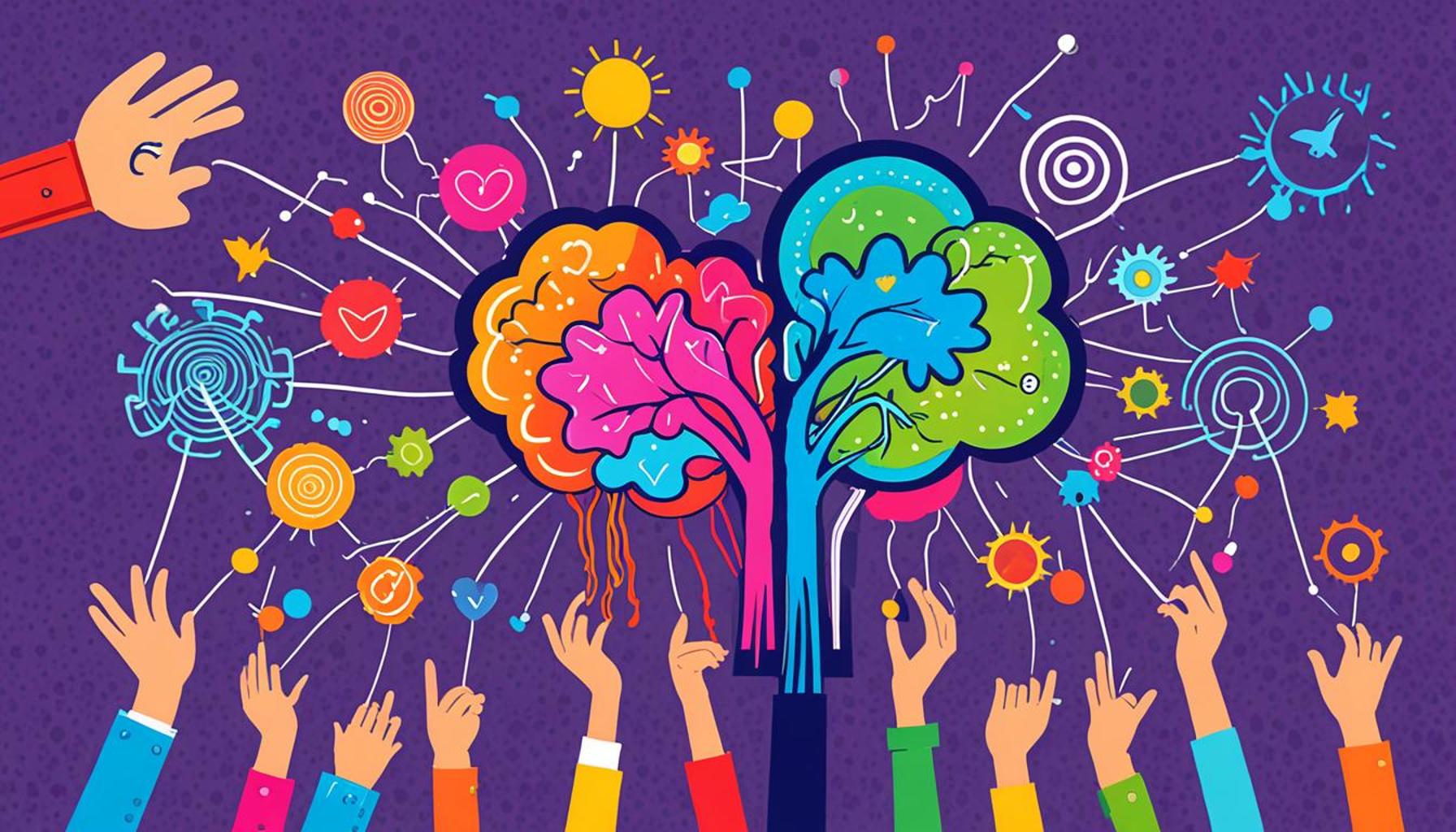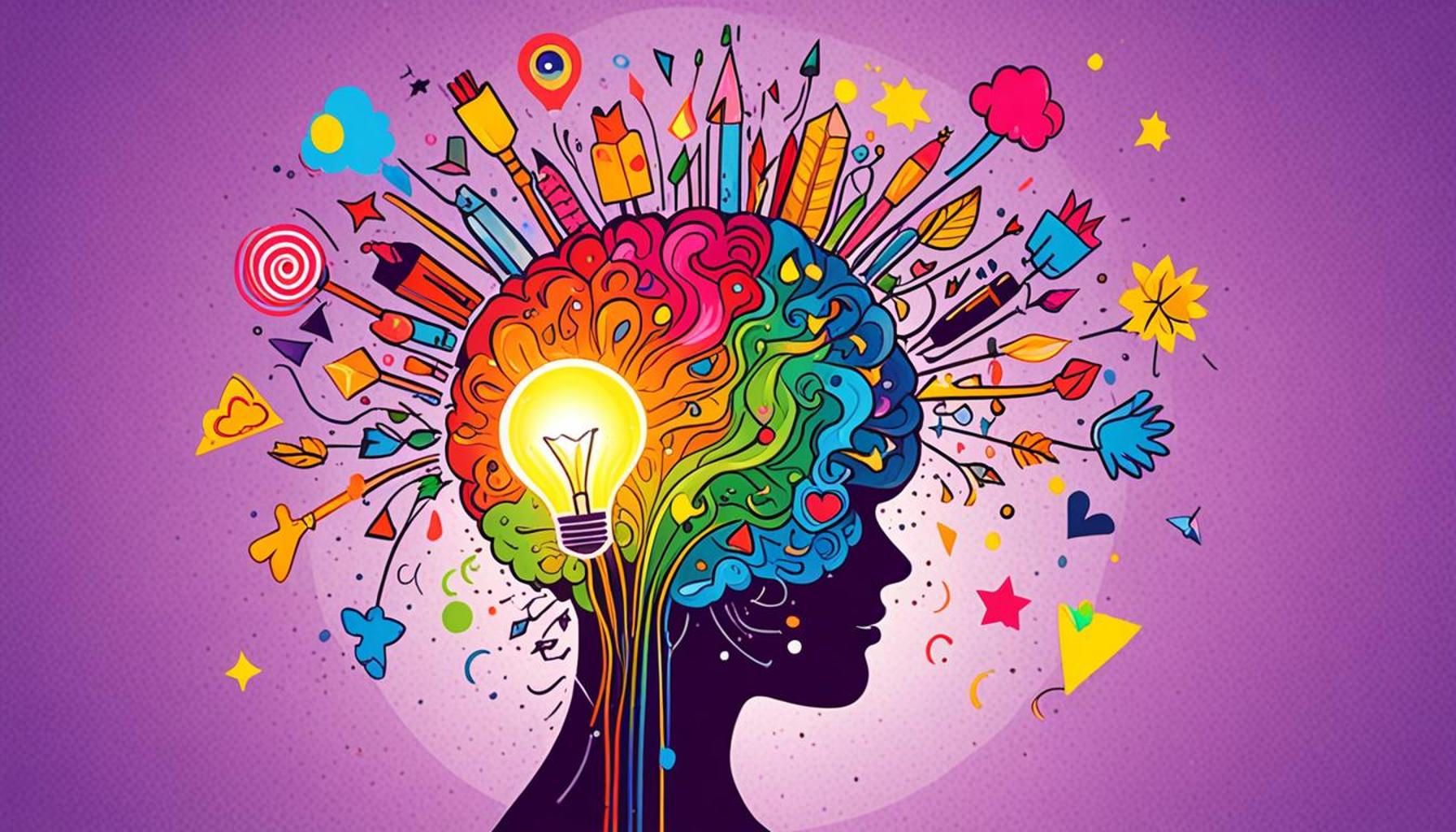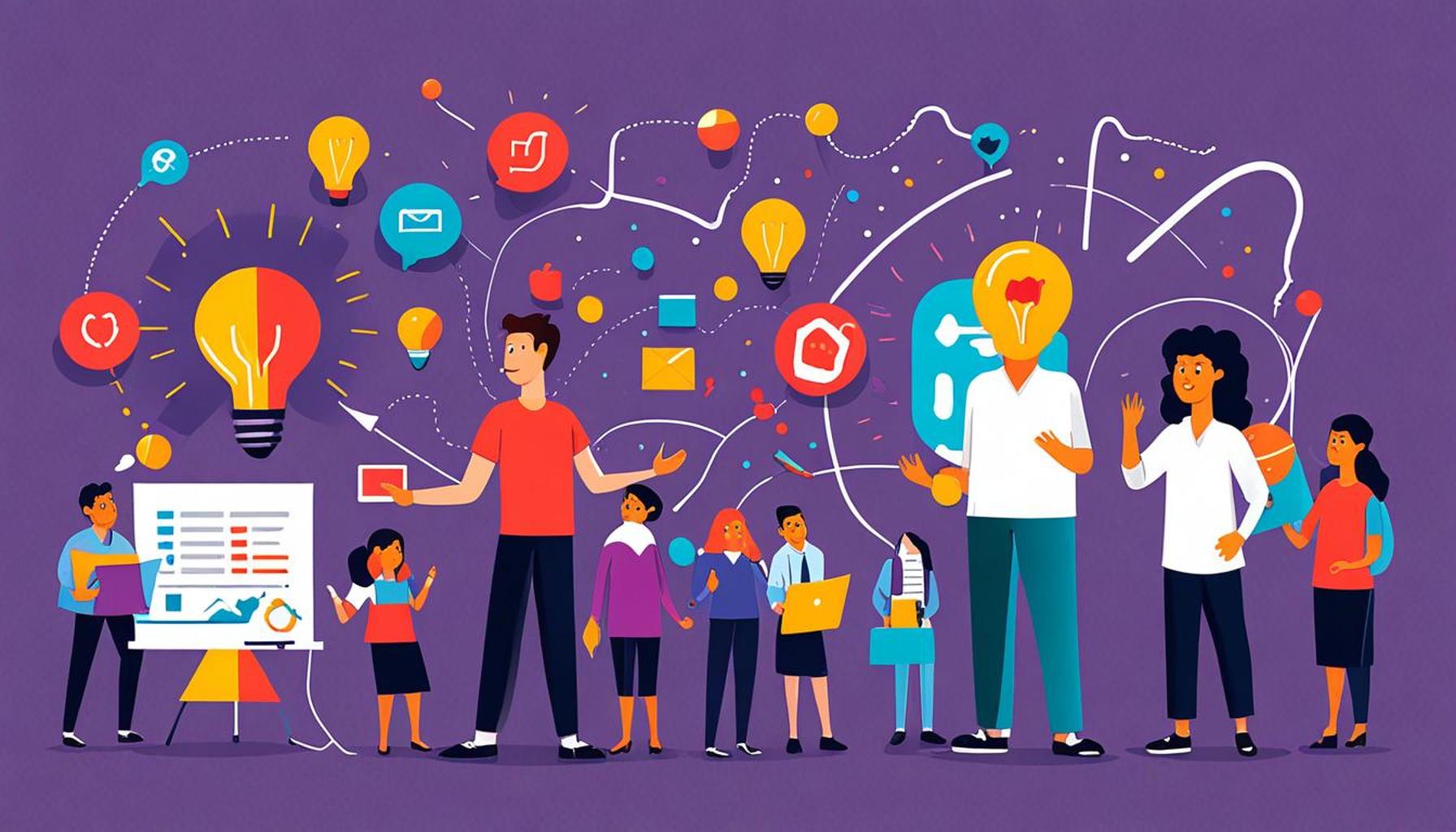The Role of Collaborative Feedback in Fostering a Growth Mindset

The Importance of Collaborative Feedback
In an increasingly interconnected world, collaborative feedback has emerged as a pivotal tool in nurturing a growth mindset. This approach fosters an environment where individuals can learn, adapt, and improve through shared insights. But what makes this feedback mechanism so powerful? By harnessing the robust forces of collaboration, this feedback method unlocks a plethora of benefits that can help individuals grow in both personal and professional contexts.
- Encourages open communication: Collaborative feedback invites diverse perspectives, breaking down barriers to honest dialogue. For instance, Nigerian workplaces often benefit from team brainstorming sessions, where employees are encouraged to express their thoughts freely, subsequently leading to innovative solutions collectively derived from unconventional ideas.
- Enhances critical thinking: Engaging with peers encourages individuals to analyze their work critically and embrace different viewpoints. A study from the University of Ibadan highlights that students who participated in peer review sessions demonstrated improved analytical skills and better problem-solving capabilities than those who worked independently.
- Builds resilience: Constructive criticism helps learners understand that setbacks are part of the journey and can lead to personal growth. Nigerian students, for example, who receive constructive feedback through group projects often learn not just academic skills but also gain the ability to navigate challenges, thus forming a foundation of resilience that will serve them throughout their lives.
In Nigeria, where the educational landscape is evolving rapidly, embracing this practice can significantly impact both students and professionals. Local initiatives, like group projects in schools and peer mentoring programs, exemplify how collaboration can lead to valuable learning experiences. For instance, consider the collaborative learning strategies implemented in various universities that amalgamate students from different disciplines to tackle real-world problems, cultivating a rich learning environment.
When individuals come together to share knowledge and feedback, they create a culture that values improvement over perfection. This culture is not limited to educational settings; it is equally vital in professional environments, including startups and corporate organizations that thrive on innovation and agility. By encouraging a feedback-rich environment, companies can develop more engaged employees who feel valued and understood, leading to heightened productivity and overall job satisfaction.
Through effective feedback, stakeholders in various fields—from students in classrooms to professionals in organizations—can cultivate a mindset geared towards continuous learning and development. By exploring the intricate relationship between collaborative feedback and a growth mindset, we uncover a roadmap for personal and collective transformation. Join us as we delve deeper into this essential topic, revealing how these practices lead to enhanced outcomes in various aspects of life, ultimately shaping a generation that values learning as a lifelong endeavor.
CHECK OUT: Click here to explore more
The Dynamics of Collaborative Feedback
As we navigate the complexities of personal and professional growth, collaborative feedback serves as a vital catalyst in fostering a growth mindset. By emphasizing teamwork and collective insights, this mechanism transforms the way individuals perceive their abilities and opportunities for improvement. Understanding how feedback, when delivered collaboratively, enhances learning experiences unlocks new pathways for self-development.
At its core, collaborative feedback is about creating a shared narrative. In Nigeria, where community ties often shape educational and workplace dynamics, feedback is not just shared; it is a dialogue that fosters connection and understanding. Imagine a local business where employees regularly meet to exchange insights on projects. Such practices not only refine individual performances but also heighten team cohesion. This continuity of feedback can help to identify strengths and areas for improvement, enabling employees to align their efforts more effectively towards common goals.
- Promotes a culture of shared learning: Collaboratively providing feedback contributes to a collective knowledge base. For example, a study at the University of Lagos illustrated that students engaged in group discussions were better equipped to tackle complex subjects, sharing unique problem-solving strategies that enriched everyone’s understanding. This approach cultivates a classroom environment where questioning and exploration are encouraged.
- Fosters accountability: In scenarios where feedback flows freely among peers, individuals feel a sense of ownership over their learning. Local community initiatives, like peer-led workshops in various Nigerian universities, exemplify this. Participants not only offer feedback but also take responsibility for one another’s progress. This increased accountability is vital for fostering resilience in face of challenges.
- Encourages reflection: The interactive nature of collaborative feedback prompts individuals to reflect on their performance critically. Engaging in dialogue pushes learners to assess not just what they did but also how they could improve, leading to deeper insights and improved strategies for future tasks.
The significance of these practices in Nigeria’s educational and corporate environments cannot be overstated. In workplaces, for instance, management strategies that focus on team feedback mechanisms can lead to substantial improvements in employee engagement. When workers feel their voices matter, it enhances their commitment to the organization and its goals. Furthermore, professionals equipped with a growth mindset are often more adaptive to changes, a necessity in today’s swiftly evolving job market.
As we delve further into the intricacies of collaborative feedback, we recognize its transformative potential. By cultivating a culture that embraces improvement and innovation through shared insights, individuals across sectors can create a pathway towards achieving not just personal growth but also contributing positively to their communities and organizations. This exploration into the role of collaborative feedback paves the way for understanding how these experiences shape mindsets and drive success.
The Impact of Collaborative Feedback on Learning
Collaborative feedback plays a pivotal role in nurturing a growth mindset. When individuals engage in a feedback exchange, it opens the door to collective learning experiences. This shared practice not only enhances individual understanding but also promotes empathy and teamwork, which are essential skills in today’s collaborative environments. Moreover, through the lens of collaborative feedback, learners can view their mistakes and challenges not as setbacks but as opportunities for improvement.
Enhancing Self-Efficacy
The act of giving and receiving feedback can significantly boost self-efficacy. Positive reinforcement from peers enhances individuals’ confidence in their abilities, making them more receptive to striving for greater challenges. For instance, when team members collectively celebrate improvements based on feedback, it fosters an environment rich in positivity and motivation. This validation encourages participants to take risks, helping them realize their potential.
Creating a Safe Learning Environment
Engagement in constructive feedback discussions cultivates a climate of openness where learners feel safe to express ideas, concerns, and uncertainties. Such environments are vital for developing a strong growth mindset, as they provide learners with the assurance that their contributions are valued. As participants learn from each other’s perspectives, they gain a broader understanding of concepts, which reinforces their ability to navigate complexity and uncertainty.
Promoting Reflective Practices
Collaborative feedback also encourages reflective practices among learners. Reflective thinking allows individuals to assess their performance critically and to identify areas for growth and improvement. Regular reflective discussions enable them to synthesize feedback and apply it effectively in future endeavors. Thus, it becomes a pillar for continuous learning and adaptation.
| Category | Description |
|---|---|
| Increased Engagement | Collaborative feedback engages students, encouraging participation and ownership of their learning journey. |
| Diverse Perspectives | Emphasizes learning from others, fostering critical thinking through exposure to varying viewpoints. |
By embracing collaborative feedback, learners become active participants in their development, transforming feedback into a tool for growth and resilience. This shift is foundational in shaping individuals who not only succeed academically but also thrive personally and professionally.
ADDITIONAL INSIGHTS: Expand your understanding here
Building Trust Through Collaborative Feedback
Trust is the bedrock of effective collaboration, and in the context of feedback, it becomes even more critical. For collaborative feedback to be truly transformative, a safe environment must be established where individuals feel valued and respected. In many Nigerian settings, establishing trust can be complex, especially where hierarchies are pronounced. However, initiatives aimed at fostering open communication help break down these barriers. When team leaders actively participate in feedback discussions, acknowledging their vulnerabilities and inviting input, they set a powerful tone for inclusivity.
Research underscores that when feedback exchanges are rooted in trust, team members are more likely to embrace constructive criticism. A notable example comes from a tech startup based in Lagos that initiated a ‘feedback buddy’ system. In this program, employees are paired to give and receive feedback regularly. Early results demonstrated increased morale and an observable boost in innovation. Employees reported feeling more secure in expressing their ideas and concerns, allowing for a richer exchange of thoughts that further cultivated a growth mindset.
- Encourages proactive problem-solving: Cultivating a safe space where collaborative feedback can flourish leads to proactive problem-solving behaviors. When team members feel part of the solution, they contribute creatively and constructively, enabling organizations to address challenges more effectively. The success of community-driven projects in cities such as Enugu showcases how collective creativity can lead to substantial improvements in local services and infrastructure.
- Enhances communication skills: Regularly engaging in feedback sessions arms individuals with the essential skills for effective communication. In regions where English is a second language, the nuances of delivering and receiving feedback can be challenging. However, through practice in collaborative settings, individuals sharpen their ability to articulate thoughts clearly, transforming potential misunderstandings into opportunities for deeper connections. This skill development is immensely beneficial in various spheres of life, reinforcing the significance of a growth-oriented culture.
- Demystifies failure: One of the most powerful aspects of collaborative feedback is its ability to reframe failure. In a society where mistakes often carry stigma, collaborative feedback normalizes the experience of setbacks as part of the learning journey. For instance, many universities in Nigeria have incorporated peer review processes in academic projects. This practice not only diminishes the fear of failure but also encourages students to view setbacks as valuable lessons, which is a cornerstone of a growth mindset.
The positive implications of cultivating trust through collaborative feedback extend far beyond individual improvement. Organizations that embrace these practices often witness a palpable shift in their culture. In sectors such as education, businesses, and non-profits, flexible feedback systems promote not just personal growth but also a collective endeavor towards achieving shared objectives. As communities engage more deeply in open dialogue about growth and development through feedback, they collectively raise the standard for excellence across various domains.
By deepening our understanding of the intricate relationship between trust and collaborative feedback, we uncover further pathways to cultivate a resilient and adaptive growth mindset. This exploration does not merely illuminate the immediate benefits but also highlights the long-term impacts on community cohesion, employee satisfaction, and overall productivity, crucial factors in today’s increasingly competitive environments.
RECOMMENDED: Check out this similar article
Conclusion: Embracing Collaborative Feedback for Lasting Growth
The transformative effects of collaborative feedback in nurturing a growth mindset cannot be overstated. As we have explored, the interplay between trust and constructive communication cultivates an environment where creativity, problem-solving, and resilience thrive. This dynamic fosters an organizational culture that prioritizes shared learning and collective success, evident in initiatives across various sectors in Nigeria, from educational institutions to innovative startups.
By embracing collaborative feedback mechanisms, organizations create spaces where failure is viewed as a stepping stone rather than a setback. The peer review processes adopted by universities exemplify how normalizing mistakes paves the way for significant learning experiences, encouraging individuals to take risks and explore uncharted territories in their professional journeys.
Furthermore, enhancing communication skills through regular feedback exchanges equips participants to articulate ideas more openly and effectively, bridging gaps that may exist within diverse teams. This practice not only strengthens interpersonal relationships but also promotes a sense of belonging and security crucial for a thriving workplace.
As Nigerian organizations increasingly recognize the importance of a positive feedback culture, we can anticipate a ripple effect that elevates individual performance and overall productivity. The future holds immense potential for communities willing to engage in honest and open dialogues about growth. In conclusion, fostering a culture of collaborative feedback is not just an organizational asset; it is a critical strategy for developing a resilient workforce capable of adapting to challenges and seizing opportunities in a rapidly changing world.



